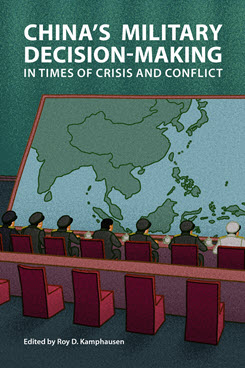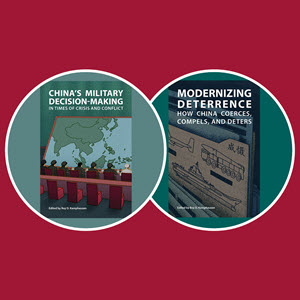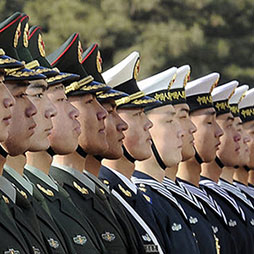How China Leverages Artificial Intelligence for Military Decision-making
This chapter investigates how the Chinese state and its military experts theorize, experiment, and apply artificial intelligence (AI) to military decision-making and explores what positive and negative factors might affect the future use of AI in this particular area.
EXECUTIVE SUMMARY
MAIN ARGUMENT
In recent years, China has designated AI development a national priority. The use of AI has benefited the regime in various capacities, and its presence is felt in the defense and security sectors. Looking ahead, AI will be a force multiplier for the People’s Liberation Army (PLA), an organization critical to ensuring regime survival. An analysis of the Chinese conceptualization of AI’s role in military decision-making and recent gains in developing AI technology for military use finds that the progress of China’s AI development for military decision-making is limited. Given the positives and negatives influencing future trends, the widespread adoption of AI technology to enhance PLA decision-making appears to be realizable in the medium term rather than the short term (that is, within ten rather than five years).
POLICY IMPLICATIONS
- The Chinese government has made AI R&D a national priority and is poised to commit further resources to developing AI for military decision-making, which will enhance the capabilities of the PLA and make it a more serious threat to Indo-Pacific stability.
- Although current progress in developing AI for military decision-making is limited, advancements in the coming years are certain, which will bolster Chinese civilian and military leaders’ confidence in undertaking military action.
- Among the impediments that will hold back China’s AI ambitions, Xi Jinping’s policy missteps and his adverse influence on Chinese state and military institutions present the greatest encumbrance. On this point, foreseeable domestic difficulties under enduring despotism could become detrimental to the PLA’s modernization and preparations for future AI-enabled warfare.
Zi Yang is a PhD candidate in the S. Rajaratnam School of International Studies (RSIS) at Nanyang Technological University in Singapore, where his research interests include civil-military relations, China’s security issues, and Chinese intelligence history.



 Assessing U.S.-China Deterrence Dynamics and Crisis Management
Assessing U.S.-China Deterrence Dynamics and Crisis Management
